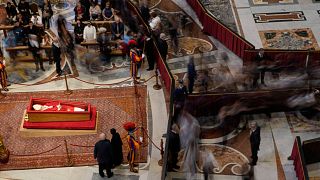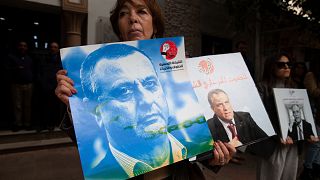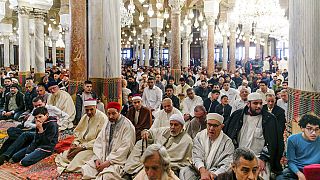Tunisia
A twin suicide attack targeting the United States embassy in Tunisia left at least one police officer dead, and others injured including a civilian.
The interior ministry, which had previously reported five officers and one civilian injured, announced in a statement the death of Lieutenant Taoufik Mohammed El Nissaoui in the first such attack to hit the Tunisian capital in eight months.
In June 2019, a double suicide bombing in Tunis claimed by the Islamic State Organization (EI) had highlighted the resilience of extremist groups, although the security situation in the country has improved significantly.
The explosion on Friday resounded at the end of the morning near the American embassy, in the Lake Banks district, about ten kilometres from the city centre, a sector permanently protected by major security roadblocks.
Police losses
Forensic police were quickly dispatched to the scene, flown over by helicopter, while shocked police officers cordoned off the area, according to an AFP journalist.
“It’s hard to keep working when you’ve just seen your colleagues injured,” a policeman on the scene reacted.
As the area was being evacuated, a young man in his 20s was arrested and taken away by the police, the AFP reporter said, without any clear link being established at this stage with the attack.
“Two people targeted a security patrol in the street leading to the US embassy,” the interior ministry said in a statement.
“The operation resulted in the death of the two assailants, wounding five police officers and slightly injuring a civilian,” the ministry said, adding that “all security units have been placed on high alert.
In particular, security lines were reinforced in front of the Ministry of the Interior on the main avenue in the centre of Tunis, where traffic was interrupted.
Historical state of emergency
Each attack brings the country back to the memory of the suicide bombings it suffered after its revolution in 2011.
Tunisia has been under a state of emergency since November 2015, with a suicide attack on the presidential guard in the centre of Tunis in which 12 officers were killed. It had also been claimed by the EI.
After the fall of the dictatorship in 2011, Tunisia faced a rise of the jihadist movement, responsible for the deaths of dozens of soldiers and policemen, but also many civilians and 59 foreign tourists.
In September 2012, the US embassy had already been targeted by demonstrators, mostly from the Salafist movement, who wanted to protest against an Islamophobic film made in the United States. Four people were killed and dozens injured in violent clashes between police and demonstrators.
After a series of attacks on tourists on a beach in Sousse (east) and at the famous Bardo Museum in Tunis in 2015, the security situation has nevertheless improved significantly over the past three years.
However, attacks against the security forces are still taking place, particularly in the mountainous areas bordering Algeria, and occasionally in Tunis.
At the end of June 2019, the double suicide attack claimed by the EI had targeted police officers in the centre of Tunis and in front of a barracks and claimed the life of a policeman.
In October 2018, a 30-year-old woman set off an improvised explosive device near a police patrol in the city centre, injuring 26 people.
AFP











Go to video
Benin says 54 soldiers killed in Islamic militant attack
Go to video
Burkina Faso military government says it thwarted "major" coup attempt
Go to video
World Food Programme to halt aid for 650,000 women and children in Ethiopia
Go to video
South Sudan to send delegation to the U.S. in a effort to appease tensions
00:58
Trump administration plans to shut down nearly 30 U.S. embassies — over half in Africa
01:09
U.S. calls on Rwanda to withdraw troops from eastern DRC and end support for M23 rebels